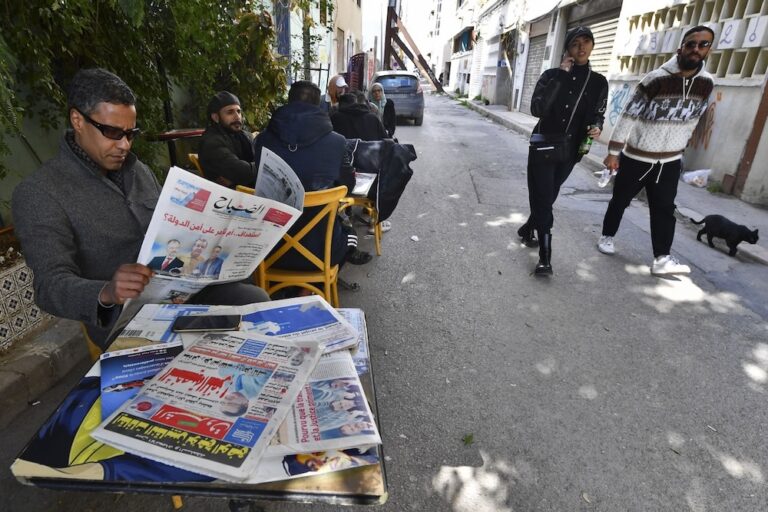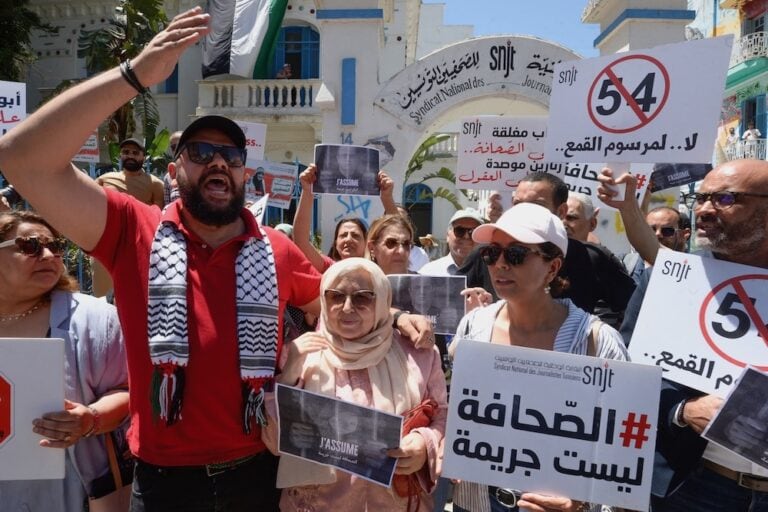(OLPEC/IFEX) – The following is an abridged version of a 10 October 2006 OLPEC press release: “Corps-otages” (Khamsoun), a new play by Jalila Baccar and Fadhel Jaibi, is censored in Tunisia The Ministry of Culture’s review board has announced the censorship of playwright Jalila Baccar’s new work, “Corps-otages” (“Captive Bodies”), directed by Fadhel Jaibi. After […]
(OLPEC/IFEX) – The following is an abridged version of a 10 October 2006 OLPEC press release:
“Corps-otages” (Khamsoun), a new play by Jalila Baccar and Fadhel Jaibi, is censored in Tunisia
The Ministry of Culture’s review board has announced the censorship of playwright Jalila Baccar’s new work, “Corps-otages” (“Captive Bodies”), directed by Fadhel Jaibi. After wavering for more than three months, the review board, which is responsible for reviewing all theatrical releases in the country, refused to issue the permit required for the play to open. The board is demanding that Jaibi bring the play in line with a list of 100 themes subject to censorship before it grants the opening permit.
Board members took issue with the play’s treatment of problems confronting Tunisian society as it enters its 50th year of independence (religious extremism, terrorism, intergenerational conflicts, abusive security policies), and have demanded that all dates, names of persons and places, as well as Koranic excerpts and references to Tunisian history be removed. Tunisians, it seems, will be denied the right to see a play which has only recently returned from a highly successful run at Paris’s Odéon theatre, in June 2006.
In Tunisia, theatre is the only cultural form subjected to preliminary censorship under the law. A public performance permit (visa de représentation publique) must be obtained for all productions. Permits are granted by the national review board, a branch of the Ministry of Culture, which along with the Ministries of the Interior and of Religious Affairs, is also represented on the board.
It is interesting to note that, as the board enjoys a virtual monopoly on theatrical distribution channels in the country, it may exercise a form of indirect censorship via these distribution channels, even when a permit has been granted.
OLPEC condemns the censorship and reminds the board that freedom of expression is a basic right of all citizens in Tunisia, guaranteed by the Constitution as well as by Article 19 of the Universal Declaration of Human Rights and the International Covenant on Civil and Political Rights.


